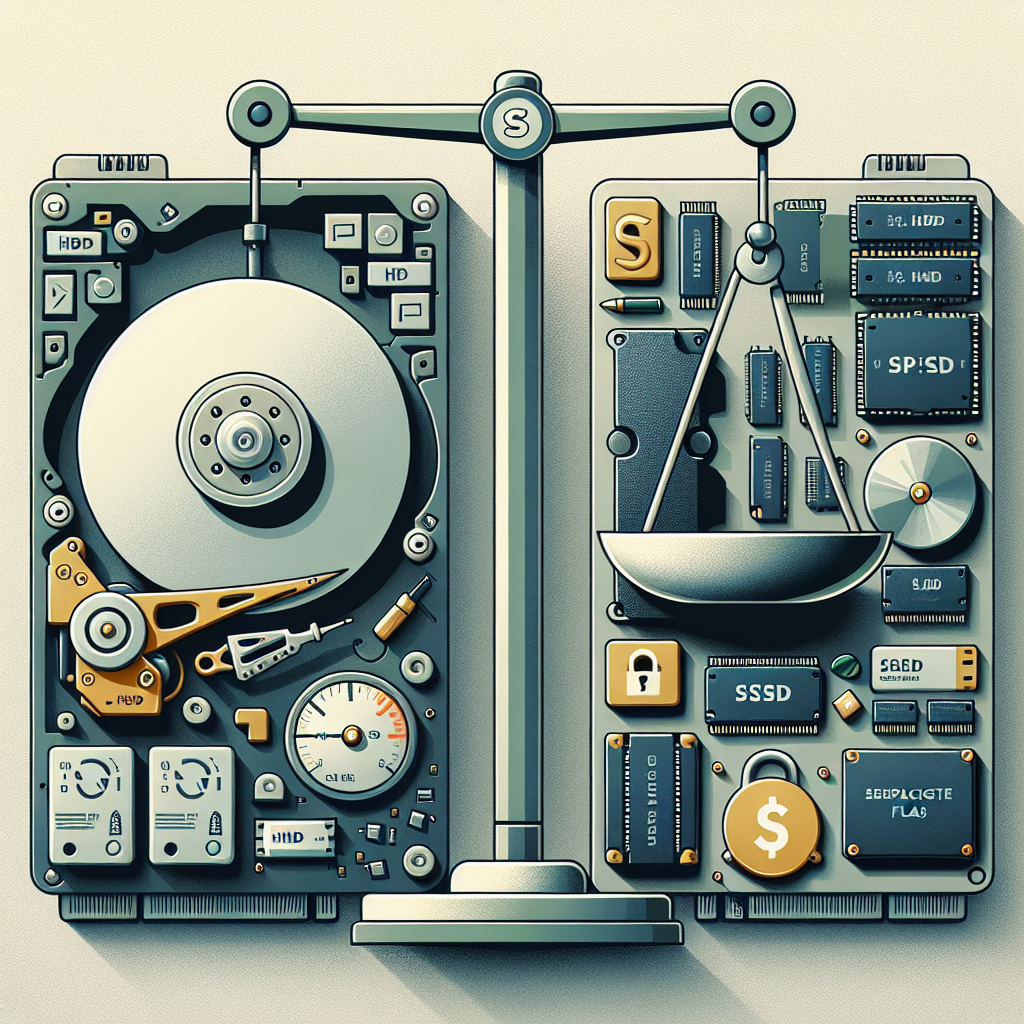Your cart is currently empty!
Understanding the Differences Between HDDs and SSDs: Which is Right for You?

When it comes to choosing the right storage solution for your computer or laptop, you may be faced with the decision between a traditional hard disk drive (HDD) and a solid-state drive (SSD). Both options have their own set of advantages and disadvantages, and understanding the differences between the two can help you make an informed decision.
HDDs have been around for decades and are still widely used in many computers today. They consist of spinning platters that store data magnetically, and a read/write head that accesses this data. HDDs are known for their large storage capacities and relatively low cost compared to SSDs. However, they are also slower in terms of data transfer speeds and are more prone to mechanical failure due to their moving parts.
On the other hand, SSDs are a newer technology that have become increasingly popular in recent years. Instead of using spinning platters, SSDs use flash memory to store data, which allows for much faster read and write speeds. This results in quicker boot times, faster program loading, and overall improved performance. SSDs are also more durable than HDDs, as they have no moving parts that can fail.
So, which option is right for you? It ultimately depends on your specific needs and budget. If you require a large amount of storage space at a lower cost and don’t mind sacrificing some speed, an HDD may be the best choice for you. However, if you value speed and performance above all else and are willing to pay a bit more, an SSD is likely the better option.
In some cases, a combination of both HDD and SSD may be the ideal solution. Many computers now come with a small SSD for the operating system and frequently used programs, along with a larger HDD for additional storage. This allows for a balance between speed and capacity.
In conclusion, understanding the differences between HDDs and SSDs is crucial in choosing the right storage solution for your needs. Consider factors such as speed, capacity, durability, and cost when making your decision, and don’t hesitate to consult with a professional if you need further guidance. Ultimately, the right choice will depend on your individual preferences and requirements.

Leave a Reply